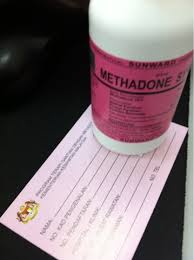Medications Used in Hydrocodone Detox
Hydrocodone is a narcotic pain killer that is prescribed by doctors. It is used to treat pain after surgical and dental procedures and other illnesses that result in nerve pain or muscle pain. When a person has used hydrocodone for a long time they can develop a dependence to the medication. If a dependence or an addiction to hydrocodone occurs most will need to go through a medical detoxification program.
When the use of opiate medication like hydrocodone is discontinued after someone has used it for a while, it causes physical withdrawal symptoms that can make you very ill. Detox from hydrocodone has become less frightening now that medications have proven to be effective in controlling the debilitating and painful physical withdrawal symptoms as well as the psychological symptoms.
Medications Used in Hydrocodone and Opiate Detox

Medications like methadone and Suboxone are often prescribed to help during hydrocodone detoxification.
Hydrocodone withdrawal symptoms can be treated with various medications. Muscle relaxers like Robaxin or methocarbamol in generic form are used to treat the painful cramping in the abdomen, back, and in the arms and legs that often occur during detox from opiates. Antipsychotics like Thorazine or chlorpromazinein can help in alleviating the psychological withdrawal symptoms that can inlude anxiety, depression and paranoia.
Buprenorphine or subutex can even greatly reduce the cravings and desire to use hydrocodone or other opiate drugs again. Methadone is also a medication that is used to reduce cravings and control opiate withdrawal symptoms. Both drugs have also shown to be successful in the treatment of drug addiction long term.
New medications on the market like ondansetron, which has already been approved to treat nausea and vomiting, is also showing to be a highly effective yet non addictive new way to eliminate opiate withdrawal symptoms as well and scientists are studying new ways to treat opiate addictions every day.
Rapid Detox
Some programs even offer “Rapid Detox” where the body is pumped full of opiate-blocking medications like Naloxone or Naltrexone while the patient is under anesthesia. This form of treatment might seem like an easy way out of detox symptoms all-together but it can also be extremely dangerous.
One of the side effects of opiate withdrawal is vomiting. If vomiting occurs while a person is under anesthesia, the person’s chances of aspiration increases, and in some cases that can result in death, and the risk seems to be of no benefit because when the person wakes up from the anesthesia they suffer the same withdrawal effects that any other person would while detoxing.
Combined Behavioral Therapy
According to NIDA, research has shown that medications that treat opiate addictions are more effective when individual and or group therapy are included and the outcome is even better when the patient is also treated for underlying mental conditions that exacerbate the addiction and receives other social intervention.
Medical detox alone is not enough to treat addiction as a whole. Counseling in conjunction with medical treatment has proven to be the most effective way to overcome opiate dependence or addiction.